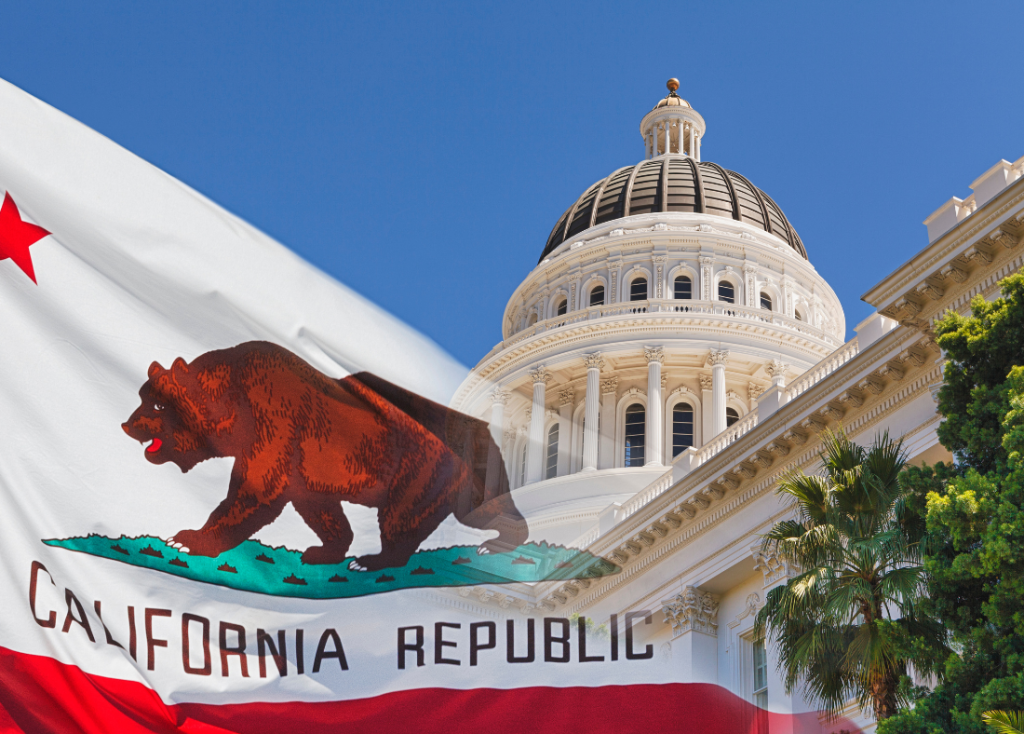By Katharine Harrison, Legislative Team Lead

We vote for state legislators that we believe will promote our well-being as Californians and hope that the legislative process is open and fair enough that we can trust them. However, this is not always the case. Even with a Democratic supermajority, small d democracy has been dealt a bad hand this summer. This session witnessed a great deal of closed-door negotiation that bypassed regular law-making and introduced legislation at the eleventh hour. Seasoned activists and lobbyists, much less the everyday citizen, had little opportunity to push back. Certainly, this has happened before, but not at this scale or level of audacity. In the current era of creeping authoritarianism, this should trouble us greatly.
In June, a controversial state budget was passed under duress and several flawed ”trailer bills” followed. ”Trailer bills” are bills closed to public hearing and discourse that direct the state how to enact and fund parts of the budget. This allows powerful actors in state government to insert language that allows priorities they champion (for good or for ill) to be enacted into law without public scrutiny. These are backroom deals made between the Governor and legislative leaders, and the purpose is to pass legislation that they suspect might not pass through the usual process.
One of these trailer bills was titled “Housing” and was apparently aimed at loosening building restrictions on affordable housing and home rebuilds following wildfires. This bill subsumed regular Assembly Bill 306 that would have prohibited any updates to either state or local building code standards for six years, including all local “reach codes” which incentivize new construction to be all-electric; it had been sanctioned by only one house. Instead, the prohibition went into effect immediately, without having to be studied in summer Senate hearings as it normally would. One illogical flaw to this bill, intended to fast track new housing, is that the prohibition includes ordinances for existing housing! Another trailer bill was “Public Resources,” which relaxes California Environmental Quality Act (CEQA, 1970) reviews for housing and other facilities such as much-needed daycare centers, virtually exempting them. While this might accomplish a laudable aim, encouraging housing near public transit, the revisions also exempt questionable projects such as “advanced manufacturing.” This was a backroom bow to Silicon Valley and the largely secretive way the tech companies are sucking up real estate and energy. Moreover, the bill makes no provision for the protection of threatened and endangered species or for tribal input.
Even though trailer bills are voted on by each chamber, they are pushed through so fast that legislators often have little awareness of the details they are voting for, some of which they would certainly oppose were they made aware of them. That’s a danger even with regular bills, but at least there are scheduled hearings where concerned citizens and groups can voice their support or opposition and draw their legislators’ attention to impacts on their communities. In contrast, activists and citizens find out about trailer bills after they have been chartered into law, and then must struggle to get the objectionable parts of them reversed. This is not a new problem. Readers may recall that in 2023 there was a sneaky trailer bill that gave the Public Utilities Commission complete authority to allow utilities to levy a monthly, income-based fee for each consumer to access the electric grid. Pushback was fierce and long and the fee structure eventually eased. How much better if this had been a bill that had gone through regular process!
Wait, there’s more. Two more sneaky bills passed with sleight-of-hand. SB 540, a highly controversial bill even among environmental activists, was written to allow California to participate in a regional energy market, ceding control of our energy grid to a regional organization also serving states without California’s clean energy goals. SB 540 did not make it past its July committee-review deadline. As a consequence, it went underground and popped up in Assembly committees late in August, as an entirely different bill, AB 825, that had been “gutted and amended.” Activist organizations learned about this two days before the end of the legislative session, which was then passed in the same rushed manner as the trailer bills, short-circuiting the normal process with open hearing and debate. This is plain trickery! It happened also with SB 237, an omnibus fuel-supply-stabilization bill that expands new oil drilling in the Central Valley, favored by the Governor despite his earlier commitments to phase out oil drilling. This bill also gutted a stalled Assembly bill and emerged as a Frankenstein, having exacted waivers from the Rules committee, without regular process through committee hearings – and was hurriedly passed.
In an era of increasing authoritarianism, we must be vigilant about such tactics and that they can be attributed to officials of either political party. These cases are clearly the will of the Governor, ProTem Maquire, and Speaker Rivas, made in secret negotiations with powerful committee chairs and legislators. They dispossess the political power of our own elected legislators and therefore deprive us of our own. Now is the time to be informed and proactive, not cynical, about the political process. These practices are likely to get worse unless each of us demands that here, in California, our legislature operate with integrity, transparency, and due process.
